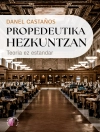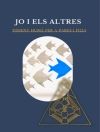Essay from the year 2022 in the subject Pedagogy – General, grade: Summa Cum Laude, University of the People (Faculty of Education), course: Masters in Education (Advanced Teaching for Elementary, Middle and Secondary), language: English, abstract: The following research paper will discuss the importance of promoting interdisciplinary learning amongst subjects to allow a deeper understanding of Science, Technology, Engineering and Mathematics (STEM). It is important to promote inquiry-based learning for students to think critically, be creative, experiment with new material and become innovators. By educating their peers through showcasing what they have learned they already promote transdisciplinary learning for subjects including Science, Technology, Engineering and Mathematics. Through means of varied activities, students can promote a deep understanding of learning STEM through Science week in Secondary School. Here an opportunity arises for them to share their ideas, opinions, and conclusions with the greater community by collaboration through Primary, Middle and Secondary schools. A guest speaker can be invited to introduce the STEM subjects and the importance of understanding how they work and related to the content of work they are studying and exploring.
Sharing their initial ideas will promote critical thinking and allow research opportunities for students to ask specific questions related to the content being studied and explored. They will be educationally challenged to share their conclusion and accept positive criticism through means of reflections and feedback shared by everyone within the educational community. Especially inquiry minds in Primary, Middle and peers within the Secondary Schools. Students will be challenged to know their content, elaborate on their research and present their findings for others to comment and present criticism.
Om författaren
Dr Mario Maxwell Muller studied and completed a Ph D in Philosophy (Arts and Social Sciences) at the University of Venda, South Africa). He has a triple master’s degree, First Class (with Distinction) from the University of Pretoria, South Africa, London College of Music, West London University, United Kingdom, and the University of the People, USA (Whilst studying at the University of the People, he concluded research papers on his research outputs in consultation with his supervisors Prof Geoff Mapaya, and Prof Mashua from the University of Venda, Faculty of Arts, Social Sciences, and Education SA).
He is currently an Academic reviewer for the South African Journal of Education, South Africa, whilst working full-time in Kenya. Dr Muller is an experienced Deputy Head of School, Author, Music Educationalist, Researcher, and IB Examiner. He recently concluded his NPQH (National Professional Qualification for Headship) course with LLSE, UK and in partnership with Cambridge University, and Canterbury Christ Church University, United Kingdom, and obtained all his degrees First Class/Distinction/Summa Cum Laude.
He was nominated among 13000 applications to be part of the six nominees representing West Africa for the Cambridge Dedicated Teachers Award for 2021, which was a great overall achievement.
His current research interests include STEAM (Science, Technology, Engineering, Arts, and Mathematics), STEM (Science, Technology, Engineering, and Mathematics), Music Education, Comparative Education, Curriculum Development, and Innovation globally.
He has published 7 articles in various journals including the International Journal of Social Sciences and Humanities Research (IJSSHR), the International Journal of Thesis Projects and Dissertations (IJTPD), and the International Journal of Interdisciplinary Research and Innovations (IJIRI).
Dr Muller has been teaching for twenty-three years in different leadership positions and has taught at prestigious schools in South Africa, England, Thailand, India, Mexico, Kenya, and Gabon.
He enjoys being a risktaker, principled and effective communicator, whilst serving as an Examiner for Music (HL & SL) for the International Baccalaureate programme.
Ensuring each child reaches their full potential through an IB curriculum is essential, through promoting inquiry-based learning, cooperative learning and collaboration for students to work together, with a strong emphasis on “International Mindedness”.












